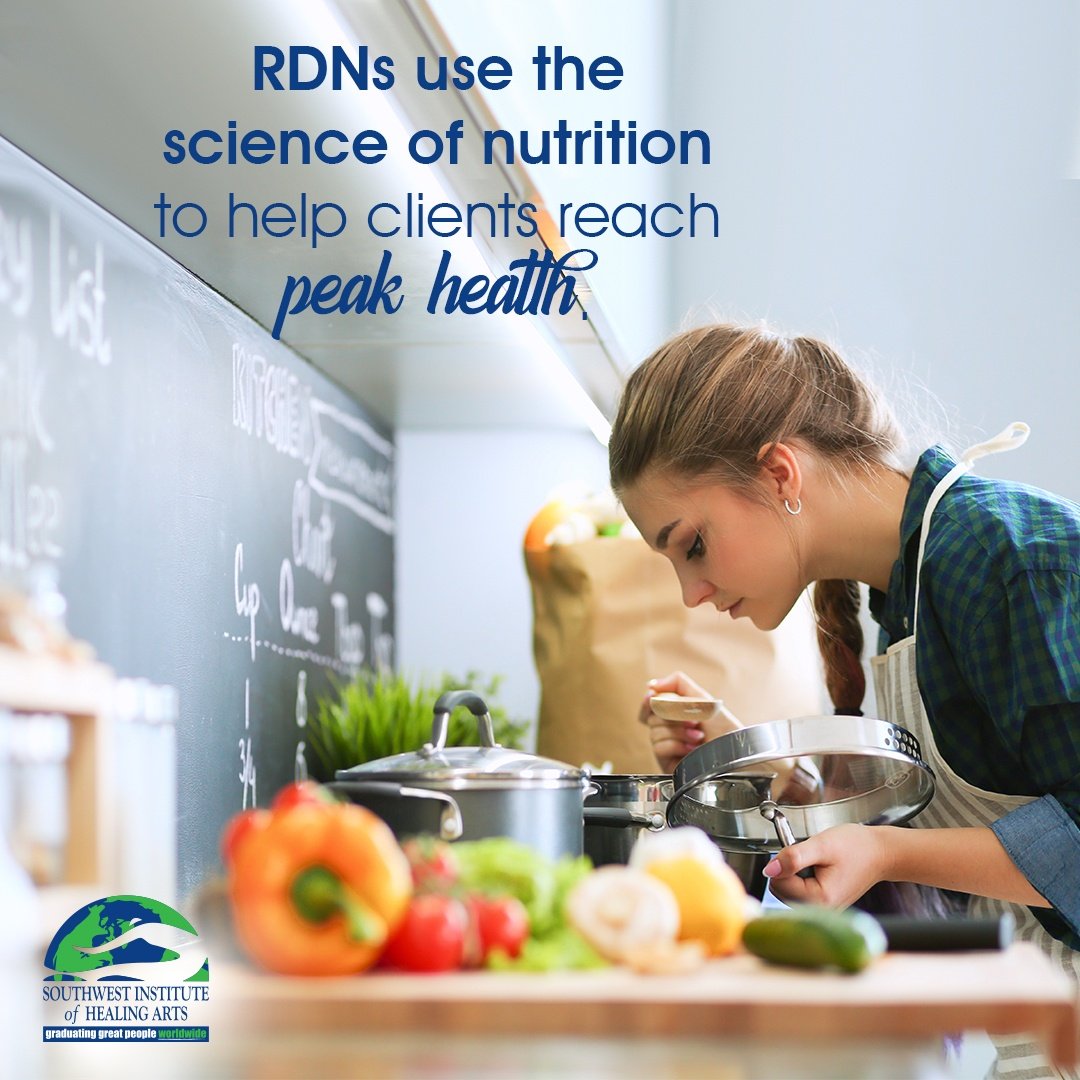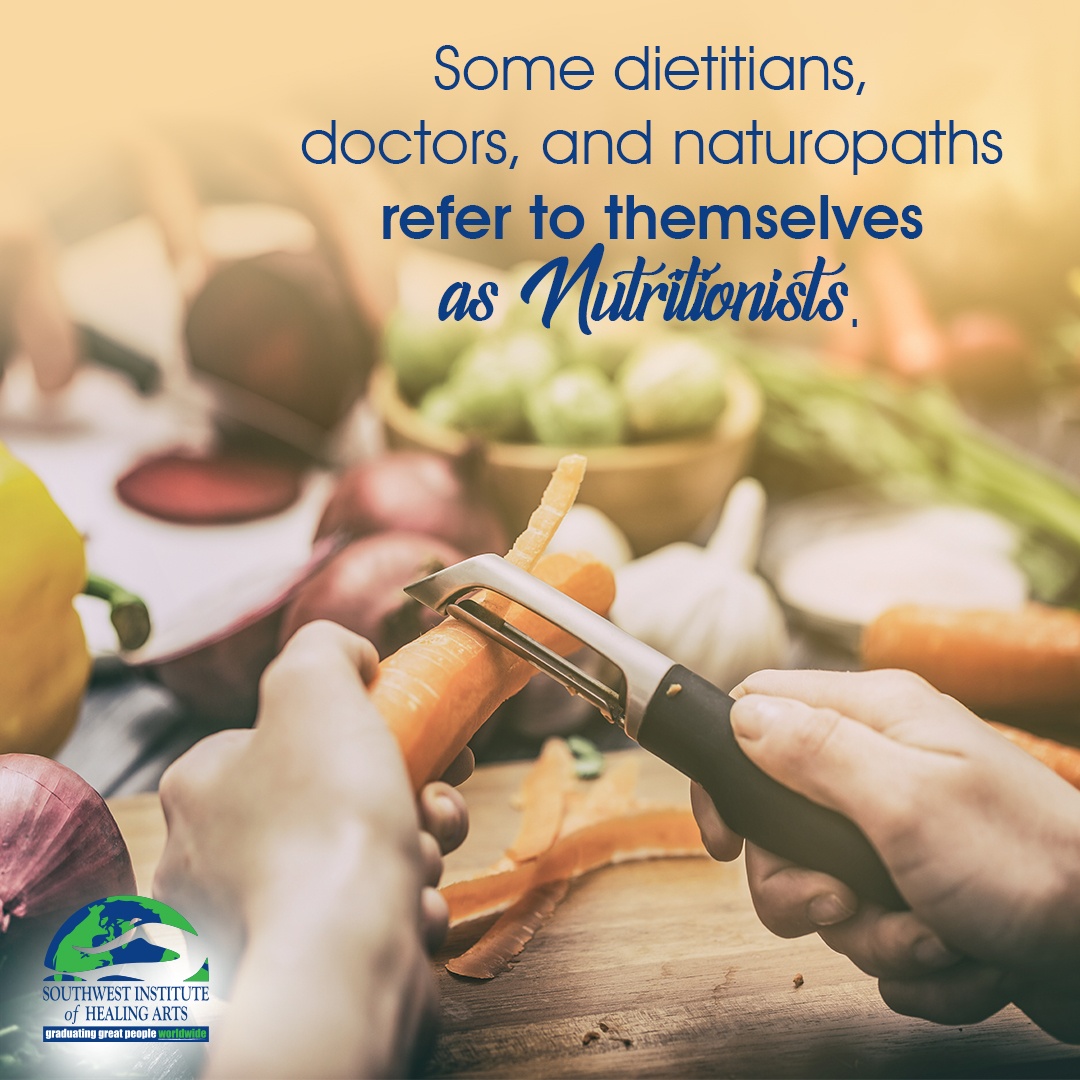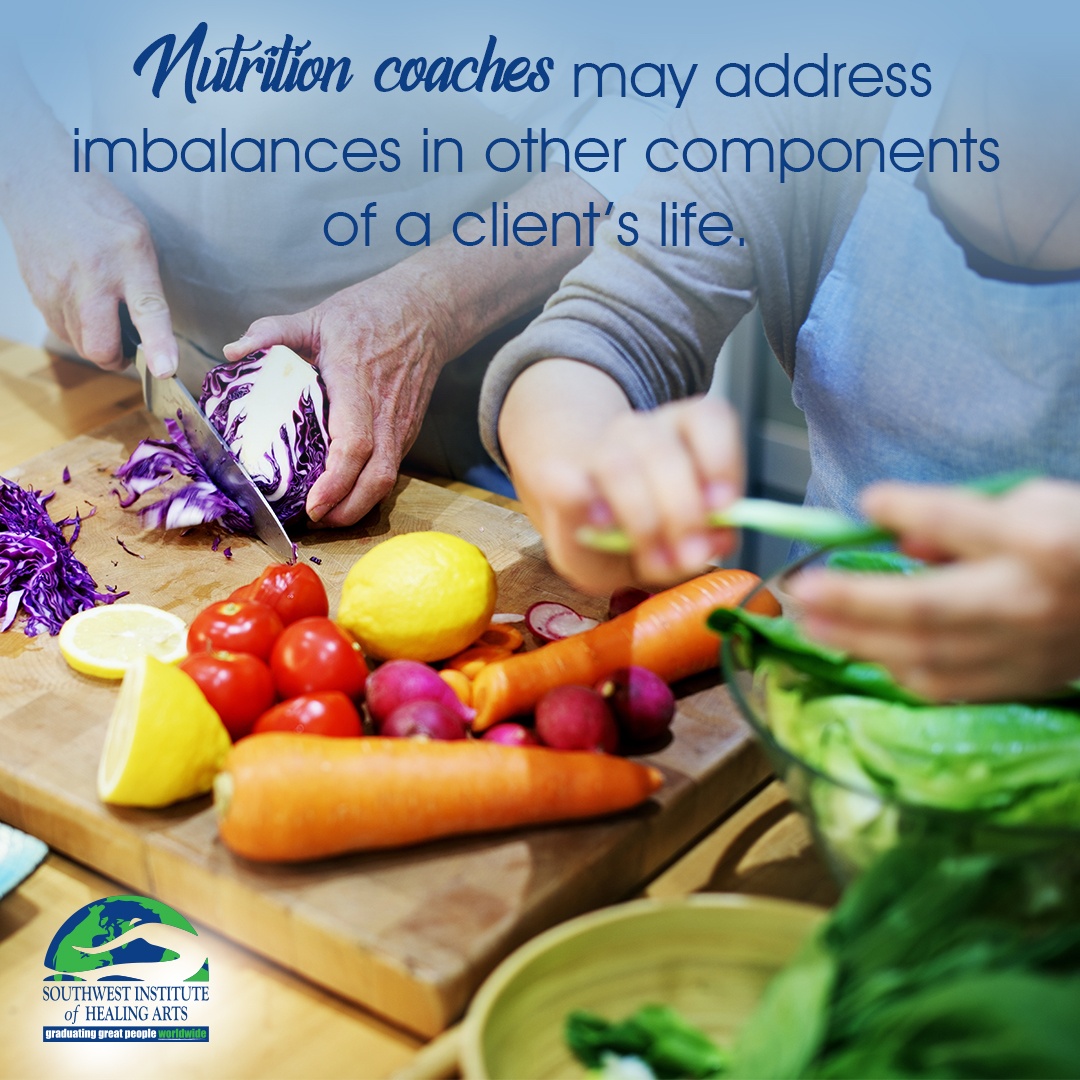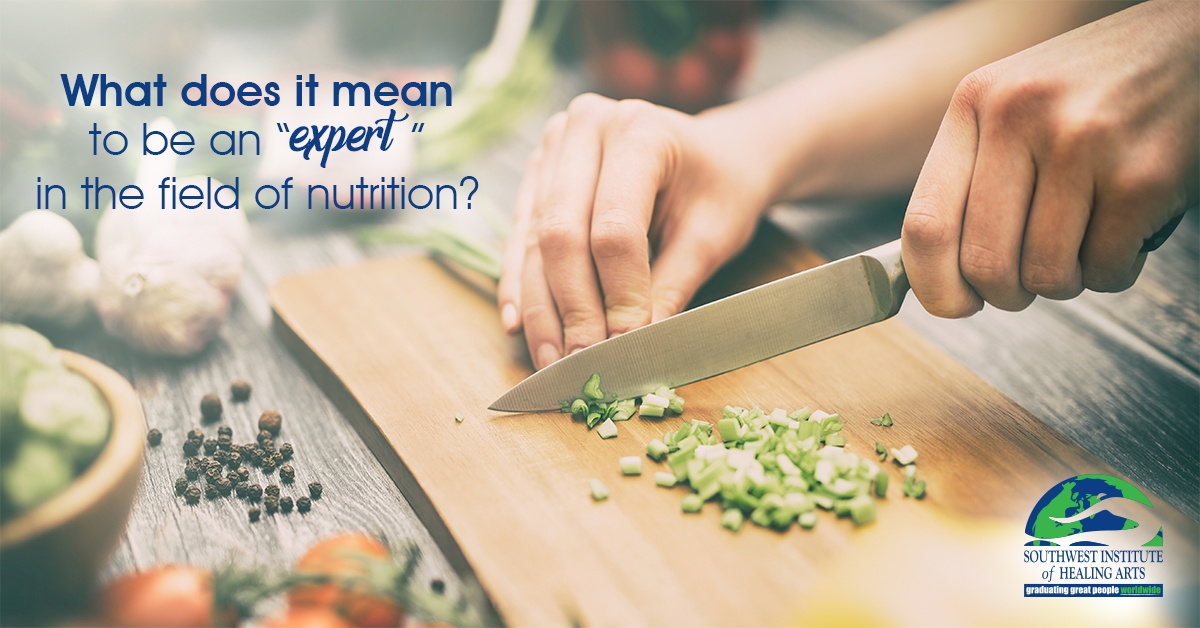Let’s face it: when it comes to eating well, a discussion of the “right” diet and “best” lifestyle is always on the table. Every day, we are bombarded with information (and misinformation!) about what to eat, how to eat, and when to eat. So, when we get confused, who do we turn to? The experts, of course!
Yet, what exactly does it mean to be an “expert” in the field of nutrition? Do you need two different degrees and a decade of schooling to be able to talk to others about eating healthier? When you’re facing down your next meal, who can you ask for solid advice?
Below we’ll look at the differences between the three most popular nutrition careers: a dietician, a nutritionist, and a holistic nutrition coach. Whether you’re looking for assistance from one of the above or looking to become one of the above, it’s important to know the educational requirements, job duties, and strengths of each!
Dieticians
 Registered Dietician Nutritionists (RDNs) are healthcare professionals who use the science of nutrition to advise clients on reaching their peak health. According to the Academy of Nutrition and Dietetics (AND), RDNs can use a client’s health history to provide personalized eating and exercise recommendations, help manage chronic diseases by reviewing lab results and developing a corresponding nutritional plan, and consult around unusual issues like food intolerances, allergies, and sensitivities. They are skilled enough to work in a clinical setting, can analyze patient data, collaborate with other healthcare professionals, perform and present research, and become actively involved in policy and advocacy, including designing public health programs, conducting safety training, and take leadership roles in healthcare programs.
Registered Dietician Nutritionists (RDNs) are healthcare professionals who use the science of nutrition to advise clients on reaching their peak health. According to the Academy of Nutrition and Dietetics (AND), RDNs can use a client’s health history to provide personalized eating and exercise recommendations, help manage chronic diseases by reviewing lab results and developing a corresponding nutritional plan, and consult around unusual issues like food intolerances, allergies, and sensitivities. They are skilled enough to work in a clinical setting, can analyze patient data, collaborate with other healthcare professionals, perform and present research, and become actively involved in policy and advocacy, including designing public health programs, conducting safety training, and take leadership roles in healthcare programs.
RDNs must complete a nutrition-related bachelor’s degree through an accredited college or university and must also finish a practice program of six to twelve months accredited by the Accreditation Council for Education in Nutrition and Dietetics (ACEND) through the Academy.
Following the successful completion of their education and outside training, future RDNs are required to pass the national exam through the Commission on Dietetic Registration (CDR), which covers the principles of dietetics, nutrition care for individuals and groups, management of food and nutrition programs and services, and foodservice systems. Once all of these criteria are completed, a RDN is finally ready to start an entry-level job!
Yet, for many RDNs, the formal pursuit of knowledge doesn’t end there! Some RDNs choose to pursue a Master of Science in Nutrition, which requires another two years of coursework typically related to public policy, advocacy, and/or the medical sciences. Regardless of whether or not they seek another degree, all RDNs are required to maintain their certification through continued education units.
Nutritionists
 While dietitians face a great deal of regulations and must meet many academic standards, nutritionists have a lot more wiggle room! When it comes to who can deem themselves a “nutritionist,” the rules vary from state to state; in some places, virtually anyone can make that claim, while in other areas a state board license is necessary. This is because the descriptor “nutritionist” is not a protected term and does not always require evidence of qualifications.
While dietitians face a great deal of regulations and must meet many academic standards, nutritionists have a lot more wiggle room! When it comes to who can deem themselves a “nutritionist,” the rules vary from state to state; in some places, virtually anyone can make that claim, while in other areas a state board license is necessary. This is because the descriptor “nutritionist” is not a protected term and does not always require evidence of qualifications.
As a basic rule of thumb, true nutritionists—not the folks merely claiming to be one on Instagram—have a bachelor’s degree in a nutrition-related field. Those choosing to pursue the official title of Certified Nutrition Specialist (CNS) must graduate from a master’s or doctoral program and finish six semester credit hours of biochemistry, three semester credit hours of anatomy and/or physiology, and twelve semester credit hours of clinical or life sciences. They perform 1,000 supervised hours of practice experience, after which they are finally allowed to take the Certification Examination for Nutrition Specialists administered by the Board for Certification of Nutrition Specialists.
Another avenue is for nutritionists to seek the designation of Certified Clinical Nutritionist (CCN), which requires an application to the Clinical Nutrition Certification Board’s Post Graduate Studies in Clinical Nutrition program, board approval, and completion of the online program. All students in this program must pass a three-hour CCN exam, after which they must regularly apply for recertification.
The scope of a nutritionist’s practicing power is largely based upon the level of education they choose. While self-appointed “nutritionists” may really not have the skills to do much, those who have received formal training are able to guide clients in their food, fitness, and overall wellness choices. It is also worth noting that some dietitians—and even some doctors and naturopaths—choose to denote themselves as nutritionists after completing additional studies in the field, meaning that many of the nutritionists out there really are impeccably educated and highly skilled individuals!
When it comes down to seeking the services of a nutritionist (or attempting to become one yourself!) it’s best to consult your specific state’s requirements for credentialing.
Holistic Nutrition Coaches
 Holistic nutrition coaches face a much less steep path to getting to work directly with clients in the health arena. While nutrition coaches are not healthcare professionals, they do possess the ability to provide coaching to those who wish to make a significant shift in their personal wellness, whether that entails trying out a new eating plan, fitness routine, or altering other behaviors.
Holistic nutrition coaches face a much less steep path to getting to work directly with clients in the health arena. While nutrition coaches are not healthcare professionals, they do possess the ability to provide coaching to those who wish to make a significant shift in their personal wellness, whether that entails trying out a new eating plan, fitness routine, or altering other behaviors.
What makes nutrition coaches special is their ability to guide their clients beyond the obvious topics; nutrition coaches may also address imbalances in other components of a client’s life that may be affecting their physical wellness, like the stability of their relationships, their stress level, and their overall happiness.
Thankfully, becoming a nutrition coach does not require the same strenuous level of education and time commitment of becoming a Registered Dietitian Nutritionist or Certified Clinical Nutritionist. It’s possible to become a Holistic Nutrition Specialist or Coach through a specialist or diploma program.
Becoming a Holistic Nutrition Coach Through Swiha
SWIHA offers a unique approach to educating its students about food and wellness, one of which is the Holistic Nutrition Wellness Practitioner Diploma.
The diploma program consists of 755 hours of nutrition-related classes with specializations offered for those looking to become a Fitness Nutrition Educator, Natural Foods Culinary Specialist, Hypnotherapist, or Mindfulness and Guided Imagery Facilitator.
With the Fitness Nutrition specialization, students focus on nutrition in relation to exercise as well as behavioral change. Students learn the ways in which nutrition aids in metabolism, energy storage and usage, functional foods, and how to identify eating behavioral issues. They are prepared to help clients achieve their macro and micronutrient goals in order to optimize athletic performance. Fitness Nutrition Educators can be found in training gyms, as consultants to athletes and brands, and, of course, in a private practice setting. This concentration is designed for and includes the NASM Fitness Nutrition Specialist (FNS) and Behavioral Change Specialist (BCS) certification examinations.
The Natural Foods specialization prepares students to accommodate all different lifestyles and diets of their clients. Students get trained in different styles of cooking and types of food allergies. There is an emphasis on food preparation, cooking, and sanitation, and students are taught the knowledge needed in order to pass the Food Service Worker examination. Those who go through this program are preparing themselves for careers as home chefs, consultants, caterers, guest chefs, nutrition consultants for corporations, health food store chefs, and recipe developers. Natural Foods Culinary Specialists have the unique training to assist clients in recipe choosing, grocery shopping, planning, and preparation.
The other two specializations, Hypnotherapy and Mindfulness and Guided Imagery Facilitator, provide prospects for students wishing to work in a more mind-body-spirit-oriented environment. Hypnotherapy is often used to affect behavioral change, making it a useful tool for students wishing to help clients disengage with unhealthy behaviors. The Mindfulness and Guided Imagery Facilitator specialization teaches students the skills associated with the Mindfulness Based Stress Reduction and Relaxation (MBSR) techniques, making a yoga studio or private practice a perfect place for future career opportunities.
At SWIHA, future holistic nutrition coaches take marketing and entrepreneurial classes in order to ensure their ability to enter the workforce as nutrition consultants. There is a vast array of opportunities for those who actively seek them at resorts and spas, in clients’ home kitchens, group sessions, health food stores, and more. SWIHA actively prepares their students to embrace the opportunities ahead, engaging the mind, body, and spirit in adopting and teaching a holistic and nutritionally-sound lifestyle.




